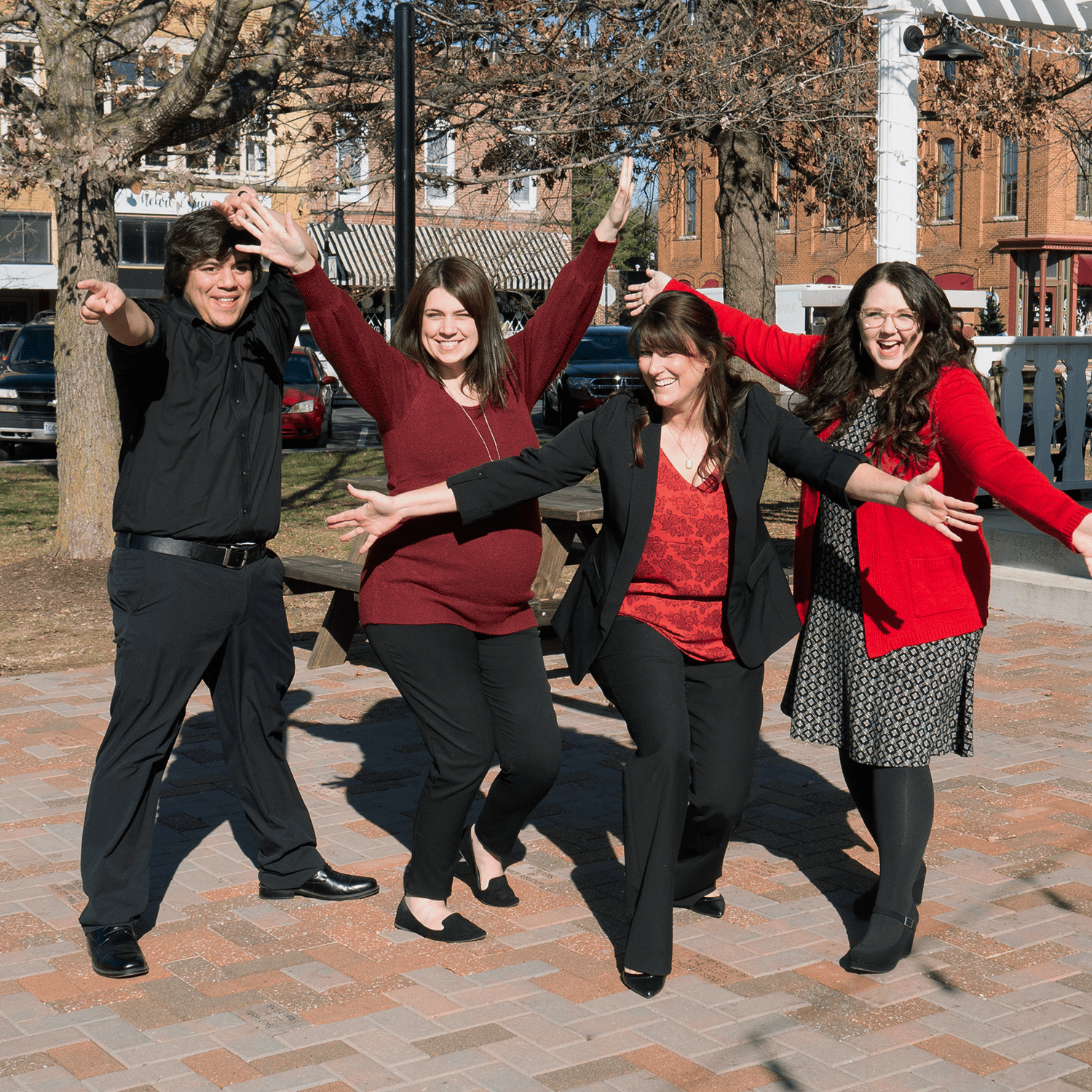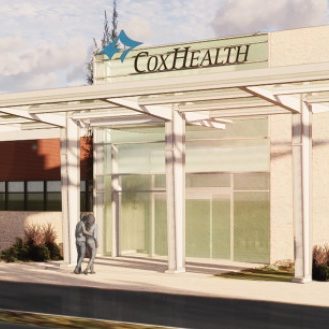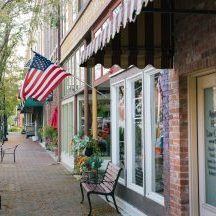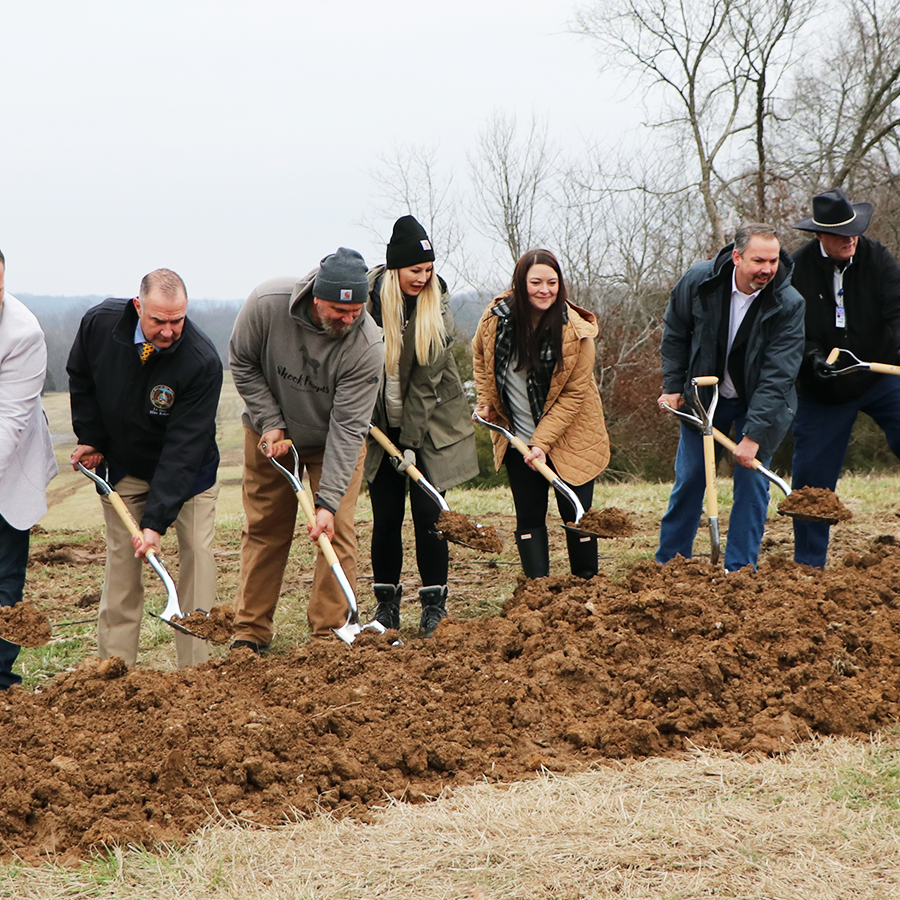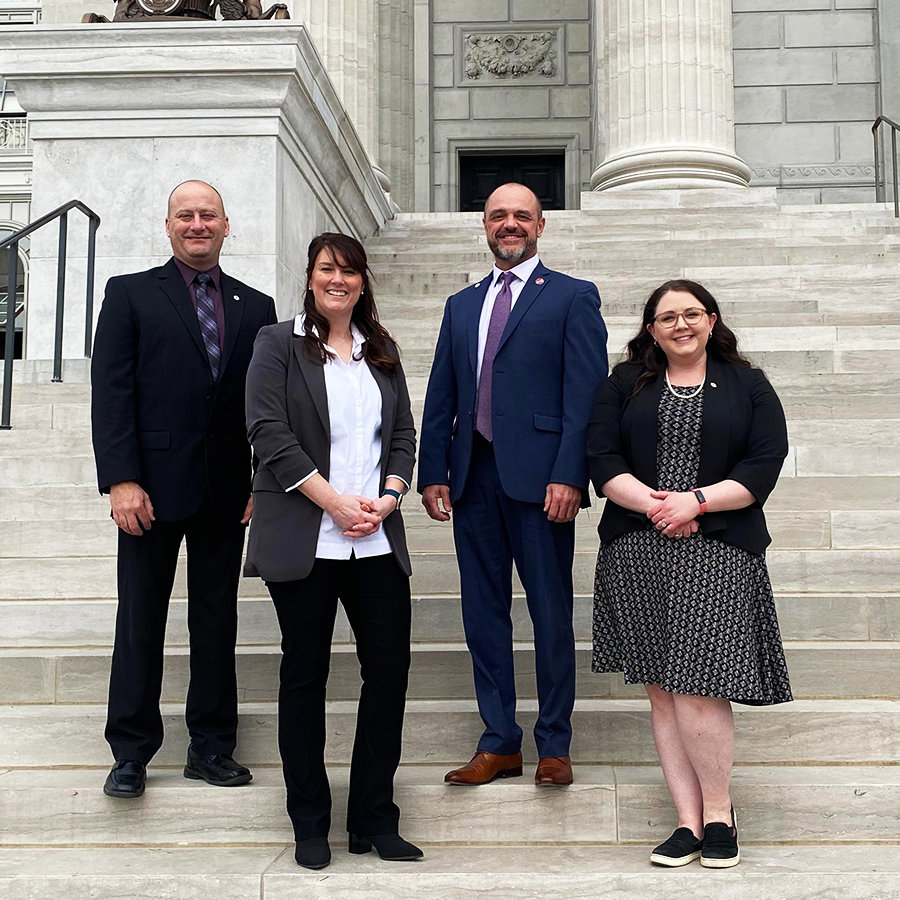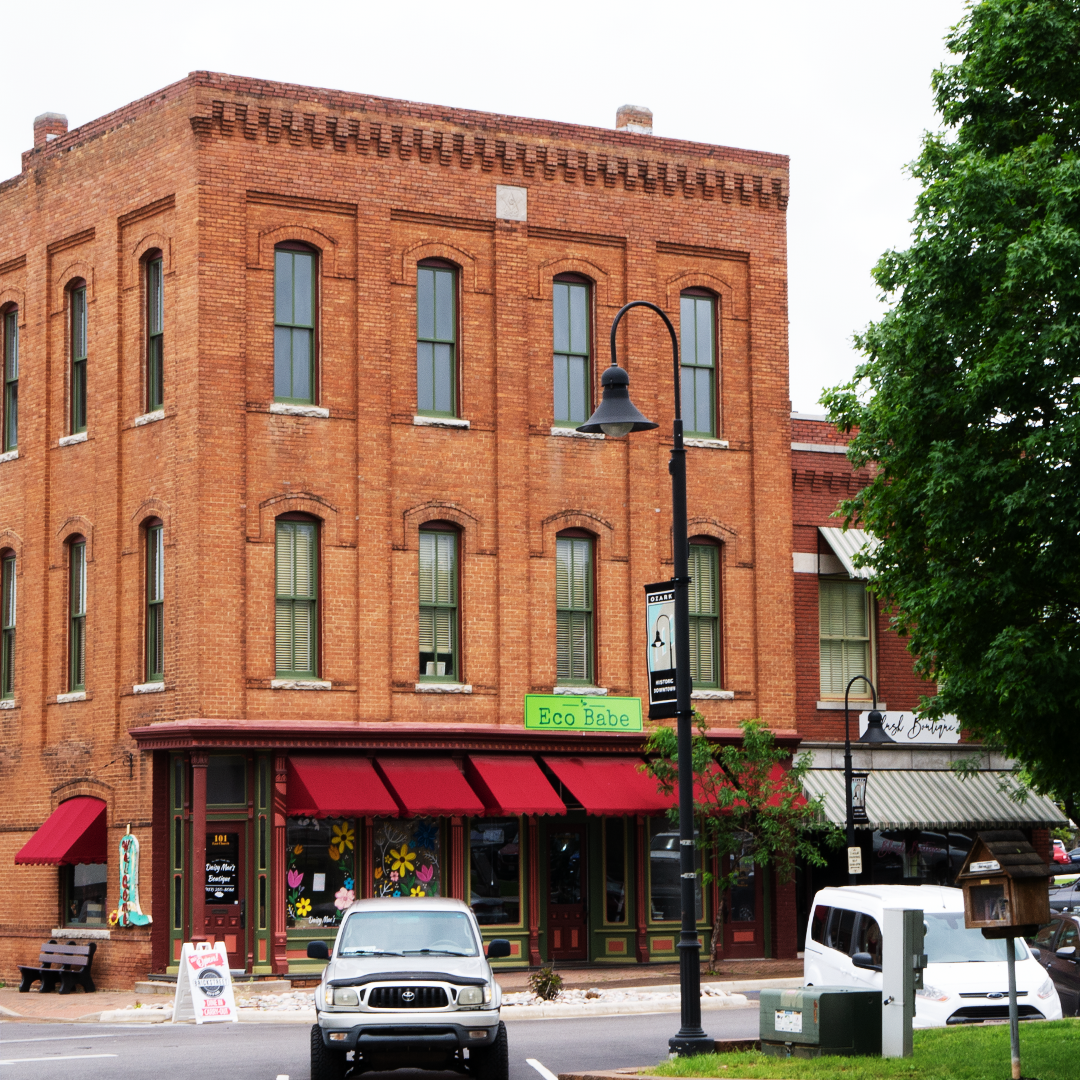Joining me now is Don Currence. Thank you very much for joining us.
Currence: Glad to be here.
Would you please introduce yourself and tell us why you decided to run for this position?
Currence: Okay. Thank you. Well, my name is Don Currence, and I'm the current mayor of Ozark. So April the 6th, will be finishing my first term. And this is something where I never dreamed one day I would be mayor. I am the church business administrator for 32 years at my church at First Baptist in Ozark and did not realize when I was encouraged to run, when our former mayor was being appointed to the position, that all my skills I've done for my whole life are the same skills that carries over to be mayor. And therefore, a lot of things happened this past two years and the things I want to continue to get done, and therefore I want to run another term to help finish what we've done. I mean, one thing that happened was we lost five directors, city administrator and two aldermen who got reappointed in my first year, and we got great people there. Our city is so blessed with the people who have hired, and I want to continue what we are planning to do in the next years to come.
What is your vision for Ozark's future and what specific steps would you take to move the city in that direction?
Currence: The vision for Ozark. As you know, we've been a growing community. I mean, we are in a wonderful location as 10 miles south of Springfield, 24 miles north of Branson. Now, we are a bedroom community. I mean, everyday 75% of our working population goes north to work in Springfield so that presents special challenges and all. And, but with that, people love being in Ozark because of, well, our schools are outstanding, our trail, family farms, the Finley River, the historic river district, the square and all. Of course, the most important thing about the city of Ozark, I've learned, are the people. I mean that's what makes Ozark so great. And what the key is we have, as we're growing to be ready for that, I mean, as for, you know, residential development as for economic development and preparing for that so we are able to handle the growth as it comes. Because, like I said, like Show Me Christian County, who we work with closely, they told me that of the 16 projects that they're working on currently, 10 of these projects are in Ozark, which is outstanding because people want to come to this city because they've heard about it. I mean, our location on 65, I mean, that's another benefit that we have that we take for granted. Again, I've always — I've been here, 32 years. I've always loved the city, but I've come to appreciate so much more now as the mayor and seeing what great things our city has. Now, are we perfect? No, but the team that we have now, as for the directors, the city administrator and all are ready to lead us to where we need to be going and looking ahead because especially our new city administrator, 20 years in Blue Springs, he has the vision to know where we need to be going as for our style of government and what we need to change and just to do what's best for the citizens of Ozark.
Ozark has experienced significant growth over the past decade. What do you see as the biggest priority in managing that continued growth effectively?
Currence: Well, with growth you have challenges. And that's one thing happening right now with MoDOT, Highway 65. As I said already, 75% of our working population each day travels north in the morning, and they come back home again. So therefore, that's why they've been widening the roads, helped with that. Also with the growth has happened, like intersection at CC and 22nd Street, that is something that's going to be worked on this year because with the addition of Olde World Estate, the apartments and all, lots of traffic there and all. So you have to look at where is the growth is taking place. I mean, they thought the growth was going to happen south of Ozark, but no, it's we — our growth has been north, as you can tell by the apartments, the housing subdivision. We do have a new subdivision about 150 homes south of Walmart that's being worked on right now. But you have to plan. And that's one thing about the sewage. I mean, our public works director, Jeremy Parson, is an outstanding person, and he gets so excited about sewage. But the thing is, it's important. That's why we're putting in right now a lift station south by the old Fasco building in order to help with the control of the sewage. Because as you bring in a new division, I mean, as new development in homes, you've gotta be able to handle that. And so therefore, we are routing things that have been going to the main sewage treatment plant is coming south with what's being developed right now with this lift station. It's about a $9 million project, and they're putting in like 23,000 feet of pipes and all to deal with this. So you got to be — you can't be looking at, well, what's the problem today? Oh no, you got to look at what the problem is in five years and things like that. And of course that's why it's important partnership with the school and all because what affects us affects them. And especially like, well, when you add new housing development because what affects them is not so much apartments. It's single residential homes that cause growth in the school system.
The April election for Ozark mayor features the same three candidates as the previous race. What new factors or issues do you think will shape this mayoral election compared to the last one?
Currence: Well, what's going to be different this time is last time we were all newbies. Now granted, Eddie (Campbell) and Dave (Snider) both have been aldermen, and Eddie also has been on planning and zoning, so they had city experience. I mean, I was the newbie. I mean, yes, have I been involved in church life my whole life? Yes. And I've been involved in politics with the Southern Baptist Convention, which at meetings where I'm helped as one of the officers. We had like 20,000 people there. But as for the city itself, I mean, I was involved in the city as part of the chamber, with my church. I've been involved with committees for the school board and things. And, plus, I'm a Kiwanian, which is a service organization. I mean, I'm always begging for donations to that so a lot of business people knew me. But yeah, I had to learn again how the city works. But again, I didn't realize how well my mindset as what I've done as a church business administrator carries over to be the mayor of that. And that has just been a great benefit because, I mean, I have background when it comes to budgeting, to HR, insurance, facilities, utilities and all that that is part of the city life, now on a smaller scale, but it's still the same concept. Of course, the most important thing as mayor is your people skill. I mean, whether you're in a church or whether you're at the city, you have to work with people and how to work with people and how to listen to them. And also to, like I said, I don't have an agenda. That's one thing when people ask me to run for mayor, I said, look, I'm not political. I don't have an agenda. And they said, we know, but we know you love this city. We know your integrity, and you'll do what's best. And that is right. I mean, when a concern comes up, you've got to listen to both sides. You can't preform. You got to say, okay, what's going on? Because someone talks to me, I got to talk to the directors and try to get the backstory because there's always a backstory, what's going on. And then make what is the best decision for the citizens of Ozark.
In city council meetings, feedback often comes from the most vocal and frustrated residents. How do you plan to engage with a broad range of community members and ensure all perspectives are considered?
Currence: Well, as you said, normally when people come, I always go to planning and zoning meetings because everything at planning and zoning, they meet once a month, comes to us a month later, and that way I can kind of see what are the concerns, what's going on, because usually that's where it begins. And I just like, you know, hear what's taking place and talk to them and say, okay, what is the concerns? We also have neighborhood meetings now on new developments to help them meet with the developer and try to get their questions answered, because a lot of times they don't know or unfortunately, they're hearing the wrong message. And therefore, to get the truth, this is what's taking place. No, we're not doing this. We are doing this — to understand. But again, that's why I mean, we have again, on first reading of bills, you have the public session where people who are for the bill or speak against the bill, and they had the opportunity to speak. I mean, we do not limit it, saying, okay, only five people can speak. Now we do limit time. But as for, if there's 20 people there from a neighborhood that wants to speak, they can have that opportunity to do that because that's the right thing to do to allow them to hear that. And plus, also, I get hit at my mayor meeting. I have that the second Saturday of each month. I get concerns, I call them concerns. Some people say they're complaints, but I call them concerns. I'll listen to them and see what's going on and I'll do the backstory. I'll see what's going on. I'll research it. Then I call them back. I remember I've had several people surprised when I'll call them back and hey, this is what I found out. They went, you call me back? I said, yes, I said I would. What's what's going on? We're not taking recap from my mayor meetings. When I find out answers and things and putting that in the newsletter. Now, two of the city say, hey, this is what questions people are asking and these are the answers, because maybe other people may have the same question. The thing is, you got to be open and listen to them and see what the concerns are, because it's important to them.
Ozark's growth brings both opportunities and challenges, particularly in housing availability and workforce development. How do you plan to address the city's housing needs to ensure that workers, families and businesses can thrive?
Currence: Well, it takes a balance. I mean, again, we have lots — we are like 60/40 or 66/30% as for residential housing versus apartments. But the thing is, you need both because some people, when they're starting out, they can't afford the down payment and things like that. So that's why I mean, I'm excited. We have Finley Crossing, which is down, it's midtown. That's going to be about 113 homes that are more starter homes. Unfortunately, in Ozark, a starter home is like $240,000. That's a starter home, but that's we're higher than the state average. But I'm thankful for that. There's some new development coming in, which I can't talk about, which hopefully will address this in a very large way as for apartments, starter homes, senior, 55 and other type homes like that. But again, you know, people say, well, make it happen. Well, you have to have developers who wish to come in and we are very blessed, which we have lots of land still. I mean, we're not as Ozark outgrown our city limits and things like that. And so you have to make available for — hope they'll come and want to develop and listen to them. So it's basically, you know, what we try to do. Again, that's always ongoing challenge is to have the balance between, you know, what people want to keep us as a, you know, small town, which we're not. We're 23,000 people. But also we want to keep that feeling, though. That's why the historic square that we have, the things that go on down there at Christmas time, the Oktoberfest, and then the things at the park, the duck race and all are so important because it helps gives that feeling of the small town who we are as Ozark, the Christmas parade. So we still have the amenities of that feeling, but we are not. Like I said, we're not Ozark of 10 years ago.
Well, Don Currence, that concludes our interview. Thank you very much for taking the time to talk to us.
Currence: Well, thank you for the opportunity to do this. Appreciate it.

